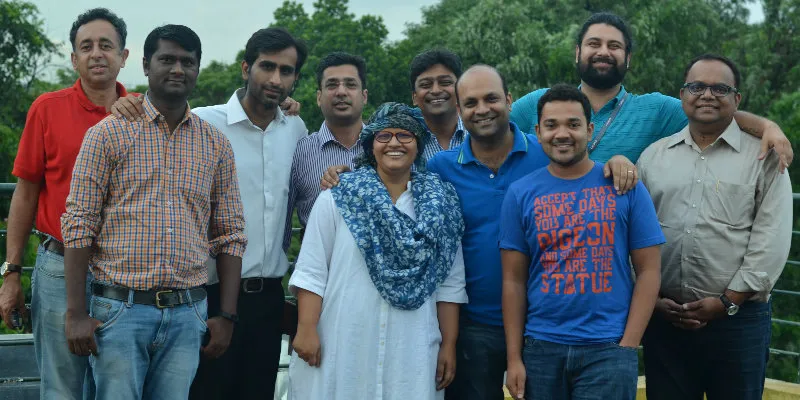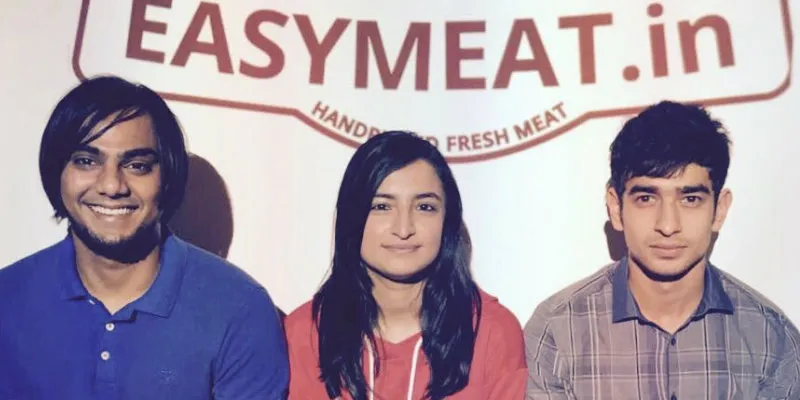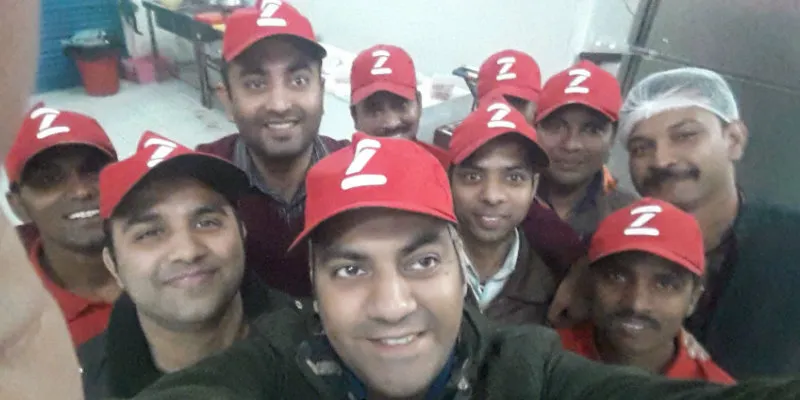Unorganised meat industry in India: A boon for the online meat selling startups to thrive
Bengaluru-based poultry products supplier Shoiab Akram was earning Rs 2-2.5 crore annually catering to only B2B customers like hotels, restaurants and hyper markets. But after he associated himself with online meat-selling firm Licious last September, his business surged by 20-30 percent. Now he caters to both B2C and B2B customers.
Started last August by Abhay Hanjura and Vivek Gupta, Bengaluru-based Licious offers five broad product categories- fresh chicken, lamb, seafood, marinades and cold-cuts. It generates 15,000 orders per month with an average order value of Rs 600 and intends to increase the orders to one lakh by October this year. Licious has a total supplier base of 30.

What drives online meat selling market?
The demand for fresh meat and the lack of quality options in the traditional 'seller-centric market' largely drive the online meat selling market in India. Increase in protein intake, preference of fresh meat over frozen, and the lack of hygiene in the traditional meat markets have given rise to this form of business, which has better supply chain management and technological intervention than the offline options.
A meaty opportunity
The fresh meat industry is highly fragmented, with the current size in India being around Rs 1,80,000 crore, and the unorganised market (butcher shops) comprising 90 per cent.
The digitisation of the market can also improve the value chain operation of the seafood industry. The Indian seafood industry is considered one of the biggest global contributors, exporting a wide range of products. From India, seafood products are shipped to more than 100 countries.
The poultry market alone is growing at over 12 percent year on year. Poultry is still fairly organised. However, the mutton and seafood market is completely untapped, giving us a huge market opportunity,” says Shiva Sharan Co-founder and CMO, EasyMeat.in.

Founded in August 2015 by Karan Singh, Vijeta Singh and Shiva Sharan, Pune-based EasyMeat offers poultry, mutton, seafood and exotic meats. It has more than 1,000 loyal customers in both B2B and B2C segment.
Currently, the supply of meat products is restricted to only roadside vendors and shopping malls/hyper markets (who sell frozen meat with limited variety). With consumers increasingly waking up to e-commerce and food tech, the online version of meat industry will certainly crack the business model.
“We believe we will be able to bring a quality product at a standardised pricing for mass market consumption,” says Deepanshu Manchanda, Co-founder, ZappFresh.
Launched in July last year, ZappFresh works on an inventory-based model with 3,000-sqft storage plus processing unit in Gurgaon. With over 60 SKUs, it offers all the range of raw meats, salamis, sausages and ready-to-eat products. The startup delivers to more than 17,000 customers per month.

Food processing- a big concern
Huge capital is required for cold chain technology, the processing and preservation of meat, which results in sellers spiking up the price of the meat. The current demand-supply gap in the meat industry is largely attributed to the capital involved in maintaining cold chain temperatures.
The rise of frozen and processed meats initiated by modern retail supermarkets was primarily to gain consumers by using 'hygiene' as the USP. Startups expressed concerns over the lack of holistic approach to standardise and regularise the system. According to Abhay of Licious, those who are working ethically cater to B2B customers like McDonald’s and KFC.
According to National Food Processing Policy, 2000, full exemption from excise duty has been extended to poultry and meat products when it comes to installation of cold storage or refrigerated vehicle. The food processing industry in the past few years has garnered significant government attention, with the financial outlay increased from Rs 6.5 billion in the 10th five-year plan to Rs 50.06 billion in the 11th five-year plan.
Supply chain management
Deepanshu of Zappfresh says the company follows a comprehensive approach to maintaining the entire supply chain, right from breeding of birds/animals to last-mile delivery. It has tied up with cold chain logistics firm ColdEX, and keeps a close eye on suppliers (local farms, poultry houses) to keep birds free from diseases. The startup is currently working with 18 farms to set up plants, liaises with government bodies for tax exemptions, and consults on equipment, feeding and environmental understanding.
Vrushali Babar, Founder, MeatRoot says,
We deal with vendors who have infrastructure to cater to more than 1,000kg of meat in a few hours, ensuring quality as well.”

The company at present has 18-20 national and international brands on its portal, and works with 15 suppliers. MeatRoot does about 45 orders daily and 100 on weekends, with a ticket size ranging from Rs 580-650.
EasyMeat has tied up with nine suppliers for different types of meat and also has its own in-house butchers, allowing customers to customise the cuts.
Expansion plans
Bengaluru-based Licious will expand its presence in Delhi-NCR by the end of this year and later on in Mumbai and Pune. The firm is growing at a rate of 50 per cent month on month.
Zappfresh is growing by 40 percent month-on-month. Operational in Gurgaon and Delhi, the startup is focussing on covering the entire NCR region soon.
Pune-based MeatRoot is expanding to Mumbai and Hyderabad by end of 2017. Growing at a rate of 40 percent month on month, Pune-based EasyMeat will expand to Bengaluru in the next two to three months.







